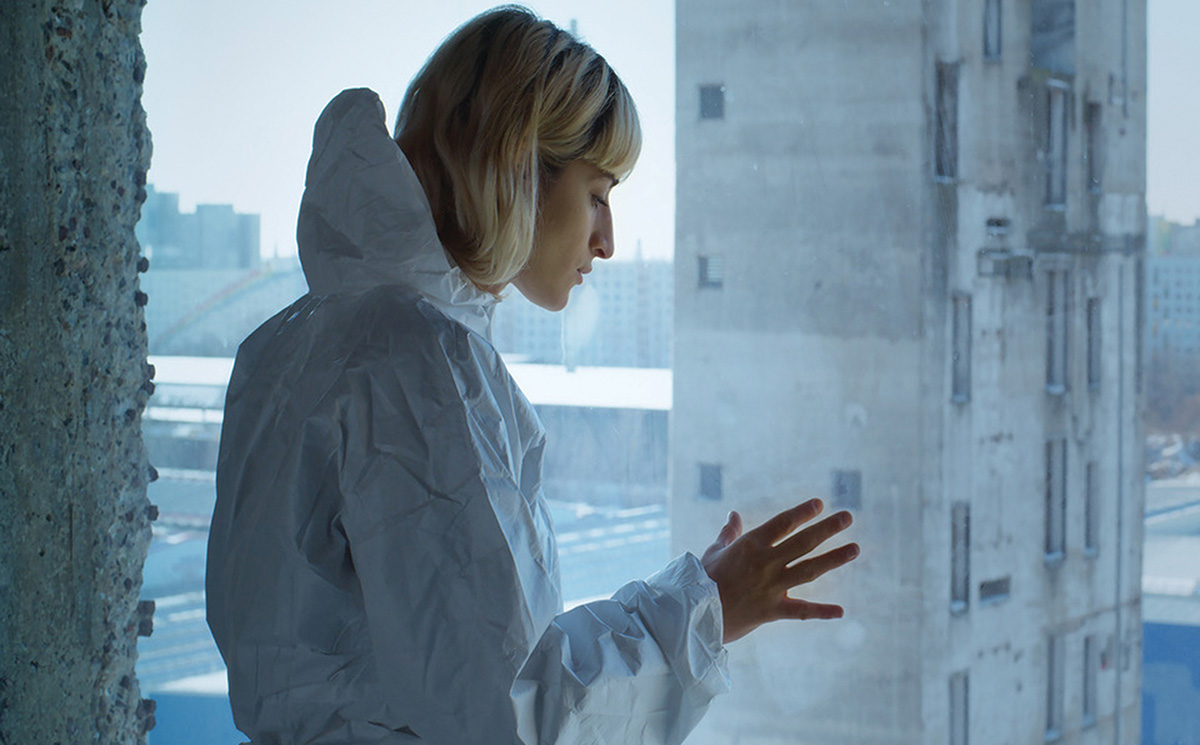Catalogue > At random

Charlotte Eifler, Clarissa Thieme
Archival Grid 1
Doc. expérimental | 0 | couleur | 13:0 | Allemagne, Bosnie-Herzégovine | 2022
With the installation ARCHIVAL GRID, Charlotte Eifler and Clarissa Thieme present a filmic analysis in three parts. The work explores the tools of evidence production, the legal impact of cartographic surveys and the social processing of collective traumata and war crimes, as well as the criticism of it by those affected. The source materials are videos from one of the most extensive publicly accessible archives on war crimes: the archive of the International Criminal Tribunal for the former Yugoslavia (ICTY). In 2001, the ICTY conducted site visits with witnesses in Sarajevo to prepare indictments related to the 1992–1996 siege of the city. The purpose of these site visits was the detailed reconstruction of war crimes, particularly the targeted shelling of civilians. Interviews with the local witnesses at the original sites were documented on video, combined with 360-degree photographs and geographical surveys. The first part of ARCHIVAL GRID combines the forensic materials gene- rated from the ICTY evidence documents with transcripts from the court proceedings and interviews conducted today with witnesses and former employees of the ICTY. These recordings of different surveying practices in the fictitious setting of a future archive architecture shape the cinematic discursive framework. This reflects close parallels of perspectives in the technologies of witnessing, evidence and testimony and juxtaposes them with the demands of the affected people for recognition of their suffering. In a second part, ARCHIVAL GRID analyses the historical backdrop of tools of inquiry and their database logic as well as their entanglements with governmentality and coloniality. Algorithms collect data from digital archives and constantly create, combine and re-organize existing and emerg- ing databases. Through historical surveying instruments, maps and globes from the Mathematisch-Physikalischer Salon in Dresden collected und used by the Electors of Saxony, Augustus (1526– 1586) and Augustus II the Strong (1670–1733), Eifler and Thieme reflect on the historic interplay between survey and data collection, its visual representations and absolutistic claims to power. A third part turns once again to the archival ICTY videos to reflect on the specific forms of image production. Juxtaposing the processes and practices of the ICTY film team and the artistic methods that were used in the production of ARCHIVAL GRID, Eifler und Thieme engage with their own positions as filming artists and their role in the interrelation with witnesses of the war.
Charlotte Eifler is an artist and filmmaker spanning performance, video, installation, XR, and sound. Her works address the politics of representation, abstraction, and computation, and are characterized by interdisciplinary forms of collaboration. Focusing on feminist approaches and elements of science fiction, she explores processes of image & history production and imaginations of alternative futures. Charlotte is co-founder and/or member of the networks Digital Critique Leipzig, G-Edit, cobratheater.cobra, FACES – gender,art,technology und feat.Fem. Since Nov 2020, she’s teaching in the department of Media Art/ Film at the Karlsruhe University of Arts and Design (HfG). Eifler’s works have been presented at ACM Siggraph Art, Los Angeles (US); Staatliche Kunsthalle Baden Baden (DE), Le printemps de Septembre, Toulouse (FR); Sapporo International Art Japan (JN); Haus der Kulturen der Welt, Berlin (DE); IMPAKT Utrecht (NL); Kurzfilmtage Oberhausen and RENCONTRES INTERNATIONAL Paris among others. Residencies and scholarships facilitated her research in Moskau (Rosa Luxemburg Foundation), New York (KdFs Foundation) and Mexico City (Institutio Nacional de Bellas Artes y Literatura). /// Clarissa Thieme works with film, performance, text, and installation, combining documentary and fictional methods to explore processes of memory and historical translation as well as their identity implications. For this purpose, Thieme often deals with subjective testimonies in the context of collective traumas and their reconstruction with technical and legal means to trace the fissures that open up between the languages of individual memory and their translation into processes of historical objectification. Her practice is research-oriented and takes a collaborative approach. In series, many of her works link together to form long-term studies that span several years. Since the early 2000s, various artistic projects have taken her to the post-Yugoslav space, where she has collaborated with various archival collections and initiatives.